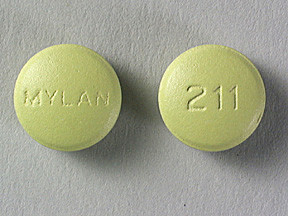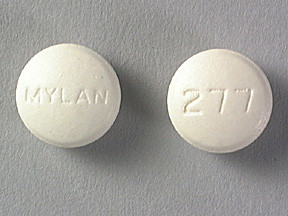AMITRIPTYLINE/CHLORDIAZEPOXIDE - ORAL
PHONETIC PRONUNCIATION: (A-mi-TRIP-ti-leen/KLOR-dye-AZ-e-POX-ide)
COMMON BRAND NAME(S): Limbitrol
GENERIC NAME(S): amitriptyline HCl/chlordiazepoxide
Uses
USES: This product contains 2 medicines (amitriptyline, chlordiazepoxide) and is used to treat mental/mood disorders such as depression with symptoms of anxiety. Amitriptyline belongs to a class of medications called tricyclic antidepressants. It may help improve mood and feelings of well-being, relieve anxiety and tension, and help you sleep better. It works by affecting the balance of certain natural chemicals (neurotransmitters such as serotonin) in the brain. Chlordiazepoxide helps to reduce anxiety. It acts on the brain and nerves to produce a calming effect. It belongs to a class of drugs known as benzodiazepines.
How to use AMITRIPTYLINE/CHLORDIAZEPOXIDE - ORAL
HOW TO USE: Read the Medication Guide available from your pharmacist. Consult your doctor or pharmacist if you have any questions. Take this medication by mouth, usually 1-4 times daily or as directed by your doctor. The larger portion of the total daily dose may be taken at bedtime to help reduce daytime sleepiness. The dosage is based on your medical condition, age, and response to treatment. To reduce your risk of side effects (such as drowsiness, dry mouth, dizziness), your doctor may direct you to start this medication at a low dose and gradually increase your dose. Follow your doctor's instructions carefully. Take this medication regularly in order to get the most benefit from it. To help you remember, take it at the same time(s) each day. Do not increase your dose or use this drug more often or for longer than prescribed. Your condition will not improve any faster, and your risk of side effects will increase. This medication may not work right away. You may feel some benefit the first week. However, it may take up to 4 weeks before you experience the full effect. It is important to continue taking this medication even if you feel well. Do not suddenly stop taking this medication without consulting your doctor. Some conditions may become worse when the drug is abruptly stopped. Your dose may need to be gradually decreased. This medication may cause withdrawal reactions, especially if it has been used regularly for a long time or in high doses. In such cases, withdrawal symptoms (such as worsening anxiety, headaches, shakiness, seizures, stomach cramps, muscle aches/cramps, vomiting, sweating) may occur if you suddenly stop using this medication. To prevent withdrawal reactions, your doctor may reduce your dose gradually. Consult your doctor or pharmacist for more details, and report any withdrawal reactions right away. When this medication is used for a long time, it may not work as well. Your doctor may need to increase your dose or change your medication. Talk with your doctor if this medication stops working well. Though it helps many people, this medication may sometimes cause addiction. This risk may be higher if you have a substance use disorder (such as overuse of or addiction to drugs/alcohol). Take this medication exactly as prescribed to lower the risk of addiction. Ask your doctor or pharmacist for more details. Tell your doctor if your condition persists or worsens (such as nervousness or feelings of sadness get worse, or you have thoughts of suicide).
Side Effects
Precautions
Interactions
Overdose
Images

- color
- green
- shape
- round
- imprint
- MYLAN, 211

- color
- green
- shape
- round
- imprint
- MYLAN, 211

- color
- white
- shape
- round
- imprint
- MYLAN, 277

- color
- white
- shape
- round
- imprint
- MYLAN, 277
Reviews
Faq for AMITRIPTYLINE/CHLORDIAZEPOXIDE - ORAL
Amitriptyline/chlordiazepoxide is a medication used to treat depression and anxiety disorders. It is a combination of two drugs: amitriptyline, which is an antidepressant, and chlordiazepoxide, which is a benzodiazepine.
Amitriptyline helps to balance certain chemicals in the brain, known as neurotransmitters, that are associated with mood and emotions. Chlordiazepoxide works by enhancing the effects of a neurotransmitter called gamma-aminobutyric acid (GABA), which helps to reduce anxiety.
Common side effects of this medication may include drowsiness, dizziness, dry mouth, blurred vision, constipation, and difficulty urinating. It is important to consult with a healthcare provider if any severe or persistent side effects occur.
It is generally not recommended to drive or operate machinery while taking this medication, as it can cause drowsiness and impair cognitive function. It is important to follow your healthcare provider's instructions regarding activities that require alertness.
The full effects of this medication may take several weeks to become apparent. It is important to continue taking it as prescribed, even if you do not notice immediate improvement. It is essential to consult with a healthcare provider for individualized guidance.
Consuming alcohol while taking this medication is generally not recommended, as it can increase the side effects and impair cognitive function. It is crucial to discuss alcohol consumption with your healthcare provider.
Abruptly stopping this medication can lead to withdrawal symptoms. It is important to gradually reduce the dose under the supervision of a healthcare provider. It is advised to consult with a healthcare professional before making any changes to your medication regimen.
This medication may interact with other drugs, including certain antidepressants, antifungal medications, antihistamines, and sedatives. It is essential to inform your healthcare provider about all the medications you are taking to avoid potential interactions.
It is important to discuss the potential risks and benefits of using this medication during pregnancy or breastfeeding with your healthcare provider. This medication may not be recommended in certain situations due to potential risks to the unborn baby or the infant.
Warning
WARNING: Antidepressant medications are used to treat a variety of conditions, including depression and other mental/mood disorders. These medications can help prevent suicidal thoughts/attempts and provide other important benefits. However, studies have shown that a small number of people (especially people younger than 25) who take antidepressants for any condition may experience worsening depression, other mental/mood symptoms, or suicidal thoughts/attempts. Therefore, it is very important to talk with the doctor about the risks and benefits of antidepressant medication (especially for people younger than 25), even if treatment is not for a mental/mood condition. Tell the doctor right away if you notice worsening depression/other psychiatric conditions, unusual behavior changes (including possible suicidal thoughts/attempts), or other mental/mood changes (including new/worsening anxiety, panic attacks, trouble sleeping, irritability, hostile/angry feelings, impulsive actions, severe restlessness, very rapid speech). Be especially watchful for these symptoms when a new antidepressant is started or when the dose is changed. Taking chlordiazepoxide with opioid medications (such as codeine, hydrocodone) may increase your risk of very serious side effects, including death. To lower your risk, your doctor should have you take the smallest dose of chlordiazepoxide that works, and take it for the shortest possible time. Get medical help right away if any of these very serious side effects occur: slow/shallow breathing, unusual lightheadedness, severe drowsiness/dizziness, difficulty waking up.
Disclaimer
IMPORTANT: HOW TO USE THIS INFORMATION: This is a summary and does NOT have all possible information about this product. This information does not assure that this product is safe, effective, or appropriate for you. This information is not individual medical advice and does not substitute for the advice of your health care professional. Always ask your health care professional for complete information about this product and your specific health needs.
No Reviews Yet